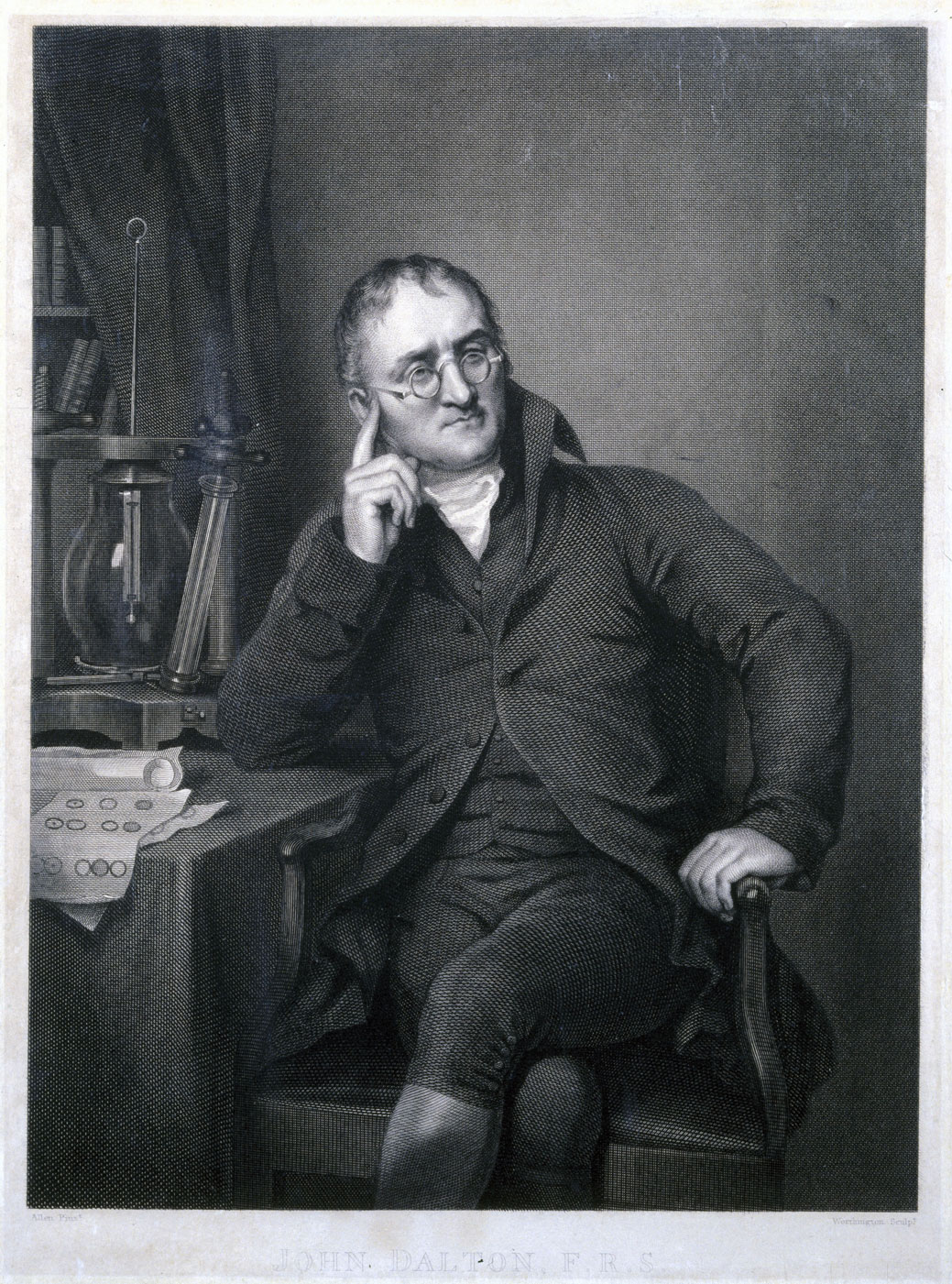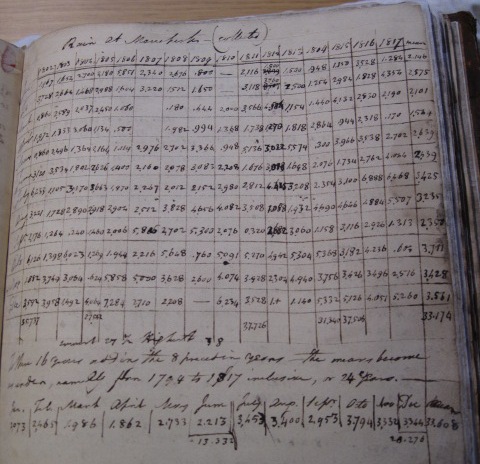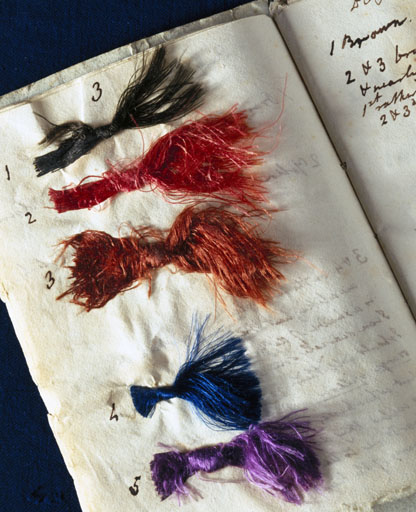To celebrate John Dalton’s birthday, Archivist Cecilia Cassingham delves into the Science Museum Library and Archives for a glimpse of Dalton’s life and work.
Thermometers, barometers and atoms. The daily weather, and how his body worked. Our archives provide fascinating glimpses and insights into John Dalton and his work, which was based on careful and rigorous observation.

We see this in Dalton’s daily habit of recording meteorological data – for which he was also well known – and we have two of his journals, dating between 1803 and 1827. Dalton records daily weather data, including barometric pressure and general remarks such as “raining most of the day”. On his birthday, 6 September 1803, the weather was “fine and sunny”. Should you want to know more about rain in Manchester in the 1800s, the Meteorological Register is the thing to read!

Of particular fascination is Dalton’s colour blindness and life as such a diligent observer. This booklet of coloured silk threads, was used by John Dalton to test his own colour blindness, includes columns for recording impressions of vision in daylight and by candle light.

Finally, in a fascinating letter in the collection, from Dalton to his cousin George Bewley of Whitehaven, on the 9 th of 4 mo 1790, that is, the 9th April 1790, Dalton expresses his desire to “quit his present profession as teacher and enter upon some other…”. He asks his cousin’s advice about his plans: “I wish to enter upon the study of physics and science”. In the same letter, he describes his experiment on himself “to determine a near as might be the quantity of matter discharged from the body by insensible perspiration …evacuations solid, liquid, perspiration…” – so that from this we are even given an idea about what he ate and drank : loaf bread, cheese, oat bread, meal, meat, potatoes; beer, boiled milk and tea.